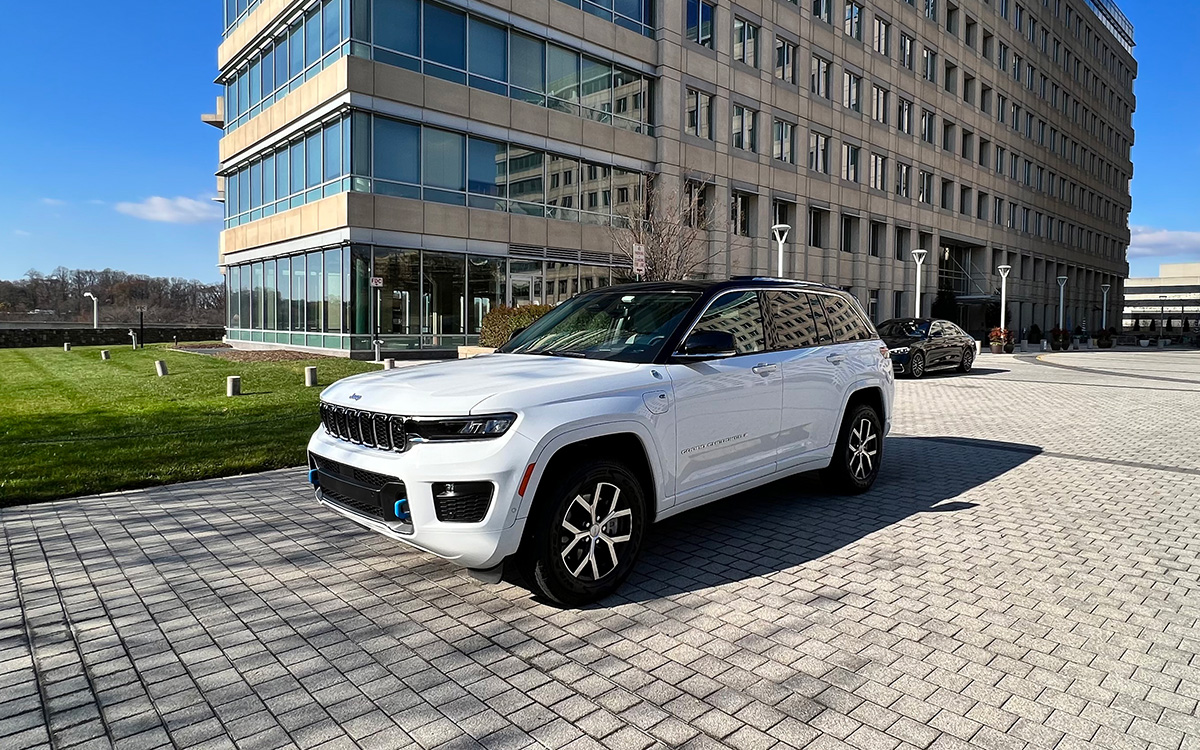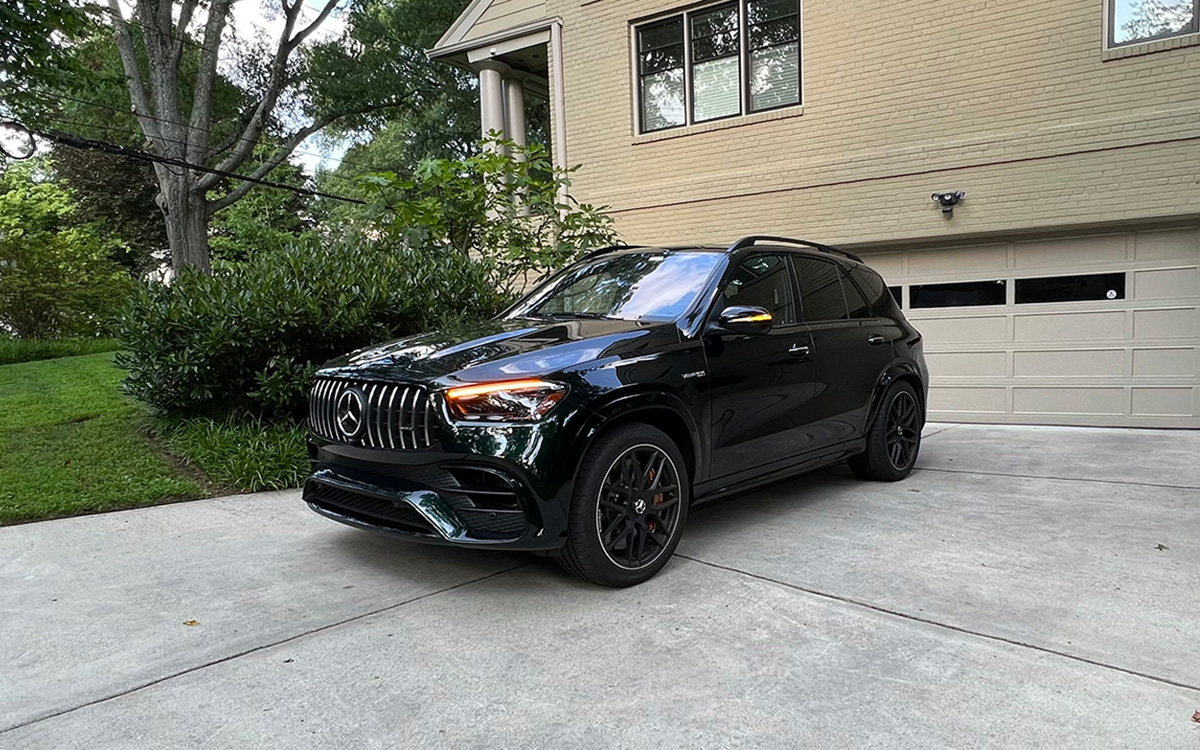Living
Tips on paying for college
Help for parents in challenging economic times

 Does this story sound familiar? You started saving for college when your son or daughter was very young and you thought you were on track to prepare for their college tuition payments.
Does this story sound familiar? You started saving for college when your son or daughter was very young and you thought you were on track to prepare for their college tuition payments.
You also assumed that your income would keep growing over the years to help you save even more. But now you realize the stock market is still off its October 2007 peak and your investments have not caught up either. With all the current volatility, it may seem that your investments are going nowhere. However, your kids are going somewhere — off to college, at a cost of anywhere from $20,000 to $55,000 a year (according to the website savingsforcollege.com).
Current wisdom suggests that 529 plans are the answer to all college funding needs. Those are education savings plans operated by a state or educational institution. These plans or programs allow you to save for qualified college-related expenses with after-tax dollars and then withdraw the funds and earnings tax-free. In addition, many states offer the owner of the 529 plan full or partial state income tax deductions for their contributions to the state’s section 529 plans.
In this area, Maryland, Virginia and D.C. all offer the state income tax deductions. How valuable these are depends on the amount of the deduction and your overall income tax bracket. The contributions to the 529 plans are invested and are therefore subject to the returns of the stock and bond markets and, therefore, the principal invested could suffer a loss. If your child has many years before college, there may be time to ride out volatility and the benefits of the tax-free compounding will make the 529 plans an appropriate vehicle for college savings.
However, especially for those whose children are going to college in the next few years, it is usually a good idea not to devote all college savings to one savings vehicle such as a 529 plan. Current cash flow will be your go-to source at this stage. If you have been paying for private school and other pricey activities, you can simply redirect your disposable income.
If you were planning to use this freed-up cash flow for other expenses such as a dream vacation or a holiday home, you may have to put those dreams on hold if paying for college is your priority. Even if you have not been laying out the amount of cash needed for college but you still need to boost those college funds, you could probably find part of the money needed by adjusting your other expenses.
Depending on your tolerance for risk, there may be some short-term investments to consider, but keep in mind there will always be the risk that you will lose principal. Don’t put all your eggs in one basket. You can always share the cost with your children or ask grandparents or other relatives to consider helping out. You can also apply for a loan and hope for at least a partial scholarship.
Some people consider diverting their retirement savings into college expenses or even borrow from their retirement accounts such as a 401(k) (although they should be aware that limitations and penalties could apply). While this may free up cash flow and seem like a good idea, it is important not to forget your priorities. Remember, you can borrow from retirement savings to pay for other needs but you cannot borrow for retirement!
(The examples provided above are hypothetical and for illustrative purposes only. Actual results and your situation will vary. This material is for informational purposes only and is not intended to provide specific advice to any individual. Please talk to a financial adviser prior to purchasing any investments.)
Advice
Should I divorce my husband for the hot new guy in our building?
Debating whether to leave or stay after the sex goes cold

Dear Michael,
I’ve been with my husband for 10 years and the sex is pretty much gone. It stopped being exciting a long time ago and pretty much the only time we ever do it is with the occasional third.
A really hot guy moved into our building about a year ago. We would see each other sometimes in the elevator or at our building’s gym and we started talking and really hit it off. Mark is 15 years younger than I but we seem to have a lot in common. We started hooking up and the sex is amazing.
I haven’t told my husband because it’s breaking our rule about no repeats. I have to say that the secrecy is hot. It’s kind of a thrill to take the elevator upstairs when I say I’m going on an errand. But it’s more than that. I have a connection with Mark that is far more amazing than what I have ever felt with my husband. Not just the sex. We just enjoy being together, talking about anything and everything.
My husband went to visit his family last weekend and I spent the whole time with Mark. Since then I can’t stop thinking that I want to leave my husband and be with Mark.
Part of me thinks this is a crazy mid-life crisis. I mean, this kid’s in a totally different place in life. But we have mind-blowing sex and a fantastic connection. I’d like your thoughts on how to proceed.
Michael replies:
You’ve got a lot to consider.
First: Sex with a long-term partner changes over time. It tends to be less about erotic heat and more about the connection with a person whom you love. In other words, it’s being with the person you’re with that makes the sex meaningful and even great. Having a good sexual relationship with a long-term partner comes far more from a heart connection than from a crotch attachment.
Second: You seem ready to throw your relationship under the bus pretty quickly, without addressing other problems in the relationship besides sex. When you are sneaking around, lying, and rule-breaking , I don’t see how you can look your husband in the eye; and if you can’t look him in the eye, you certainly can’t have even a half-way decent relationship.
Yet another point to consider: Affairs pretty much always seem more exciting than marriage. The partner is new, which almost automatically makes the sex hotter; the secrecy is a thrill; and you don’t have to deal with paying the rent, house chores, and all the petty annoyances of living up-close with someone day-in, day-out.
You are bringing lots of energy to your affair, and everything about it is exciting. You are bringing no energy — at least no positive energy — to your marriage. You get what you put into a relationship.
Divorce is not something that should be entered into lightly. Be aware that if you leave your husband for Mark, you will no doubt find over time that the sex becomes less exciting and that the connection is not always fantastic. No surprise, 75 percent of marriages that begin with affair partners end in divorce. While I don’t think statistics predict what will happen to any particular couple, believing that you will have a significantly better relationship with your affair partner than you did with your husband sets you up for likely disappointment.
Many gay men focus on “hot sex” as the big draw, pursuing a lot of sex with a lot of men, and/or pursuing an ongoing series of relationships that last until the sex cools. If that’s what you want, that’s fine. But it’s a different path from pursuing a close and loving long-term relationship, which involves knowing someone well and having him know you well; collaborating on getting through the hard stuff life throws at us; finding ways to make peace with disappointment; and consistently striving to be someone worth being married to.
How to proceed? While you are the only person who should make that decision, I would suggest that whatever your choice, keep in mind that marriage can be more than what you’ve made of it, so far.
Michael Radkowsky, Psy.D. is a licensed psychologist who works with couples and individuals in D.C. He can be found online at michaelradkowsky.com. All identifying information has been changed for reasons of confidentiality. Have a question? Send it to [email protected].
Autos
Sport haulers: Jeep Grand Cherokee, Mercedes GLE-Class
Updated cabins, adept handling, and more

Now that March Madness and the Masters are over, it’s time for, well, everything else. For my husband and me, this means water sports, as in kayaks and rowing sculls, which is why we trekked to the Potomac for the George Washington Invitational regatta last weekend.
Alas, high winds splashed cold water on the event, canceling much of it. But there was still plenty of spirited camaraderie to rival “The Boys in the Boat.”
And I was reminded of my time years ago as a rower with D.C. Strokes, ferrying teammates to races up and down the East Coast. Back then my ride was a dated, rather cramped four-door sedan.
If only we could have paddled around in a sporty SUV like the two reviewed here. Now that would have been some smooth sailing (wink-wink).
JEEP GRAND CHEROKEE
$40,000
MPG: 19 city/26 highway
0 to 60 mph: 7.5 seconds
Maximum cargo room: 37.7 cu. ft.
PROS: Updated cabin, adept handling, strong towing
CONS: So-so gas mileage, no third row, pricey trim levels
IN A NUTSHELL: Rough, tough and buff. It’s doesn’t get much more butch than a Jeep. This year’s Grand Cherokee is no exception, with rugged looks, expert off-road capability and better-than-average towing capacity of 6,200 pounds.
There are a dizzying number of trim levels—more than a dozen—starting with the barebones base-model Laredo at an affordable $40,000. The lineup tops out with the Summit Reserve 4xe PHEV, which is almost twice the price at $76,000 and one of various plug-in hybrid versions available. Those plug-in hybrids can drive up to 25 miles on all-electric power before the four-cylinder gas engine kicks in. Otherwise, you can choose from a standard V6 or V8. Gas mileage on all trim levels is basically the same as the competition.
Where the Grand Cherokee really shines is in the handling. More refined than a Wrangler but less lavish than a Land Rover, this Jeep maneuvers just as well on city streets and highways as it does on bumpier terrain.
I tested the mid-range and mid-priced Overland, which comes standard with four-wheel drive and large 20-inch wheels. It also boasts a slew of niceties, such as quilted upholstery, panoramic sunroof and high-tech digital displays. These include a 10.25-inch infotainment touchscreen and rear-seat entertainment system.
The nine-speaker Alpine stereo, designed specifically for the Grand Cherokee, is pleasing. But I really wanted to hear the boffo 19-speaker McIntosh surround-sound system that Jeep also offers. Sigh, it’s only available on the premium Summit trim level.
MERCEDES GLE-CLASS
$64,000
MPG: 20 city/25 highway
0 to 60 mph: 6.6 seconds
Maximum cargo room: 33.3 cu. ft.
PROS: Lush interior, silky-smooth suspension, speedy
CONS: Some confusing electronics, tight third row, many competitors
IN A NUTSHELL: For a more high-class hauler, there’s the Mercedes GLE-Class. This midsize SUV is similar in size to the Jeep Grand Cherokee. But instead of seating five passengers, the GLE can carry up to seven. Sure, legroom in the optional third row may be tight for taller travelers, but it’s perfect for a cocky cockswain or two.
Six trim levels, ranging from the base-model GLE 350 to two high-performance AMG models. For eco-conscious buyers, the GLE 450e plug-in hybrid arrived earlier this year and can run on battery power alone for almost 60 miles.
My test car was the top-of-the-line AMG 63 S 4Matic, a head-turner in every way. Priced at a whopping $127,000, this GLE looks best in glossy black with the Night Package, which includes tasteful jet-black exterior accents and matte-black wheels. To complete the Darth Vader effect, there’s a deep, menacing exhaust rumble that’s downright threatening.
You expect such a ride to be wicked fast, and it is: 0 to 60 mph in a blistering 3.7 seconds. Yet the carbon ceramic brakes with their devil-red calipers are equally impressive in slowing things down quickly.
Inside, each GLE comes with two large digital displays on the elegantly sculpted dashboard. My favorite feature is the “Hey Mercedes” digital assistant, which responds to voice commands such as opening or closing the sunroof, operating the infotainment system or activating the climate controls.
It’s hard to find sport seats that are more comfortable, especially with the heavenly massage function (though those massage controls could be a bit more user-friendly.) For AMG models, the seats come with red-contrasting stitching and red seatbelts—a nod to the devilish demeanor under the hood.
Considering all the SUVs available in showrooms, few make quite the splash of a GLE.

Real Estate
Boosting your rental property’s curb appeal
Affordable upgrades to attract and keep tenants happy

In the District of Columbia, the rental market tends to open up significantly during the springtime for several reasons. First, spring brings about a sense of renewal and change, prompting many individuals and families to seek new living arrangements or embark on relocations. Additionally, the warmer weather and longer daylight hours make it more conducive for people to explore housing options, attend viewings, and make decisions about moving. Furthermore, spring often coincides with the end of academic terms, leading to an influx of students and young professionals entering the rental market.
Landlords and property managers also tend to schedule lease renewals or list new vacancies during this time, capitalizing on the increased demand and ensuring a steady turnover of tenants. In the competitive world of rental properties, attracting and retaining quality tenants can be challenging. However, with some strategic upgrades, property owners can significantly enhance their units’ appeal without breaking the bank. From enhancing curb appeal to interior upgrades, here are some practical and cost-effective ideas to make your rental property stand out in the market.
Curb appeal
First impressions matter, and curb appeal plays a crucial role in attracting potential tenants. Simple enhancements like freshening up the exterior paint, adding potted plants or flowers, and ensuring a well-maintained lawn can instantly elevate the property’s appearance. Installing outdoor lighting not only adds charm but also enhances safety and security.
Interior upgrades
Upgrade the kitchen and bathroom fixtures to modern, energy-efficient options. Consider replacing outdated appliances with newer models, which not only appeal to tenants but also contribute to energy savings. Fresh paint and updated flooring can transform the look of a space without a hefty investment. Additionally, replacing worn-out carpets with hardwood or laminate flooring can make the unit more attractive and easier to maintain.
Enhance storage
Maximize storage options by installing built-in shelves, cabinets, or closet organizers. Tenants appreciate ample storage space to keep their belongings organized, contributing to a clutter-free living environment.
Improve lighting
Brighten up the interiors by adding more lighting fixtures or replacing old bulbs with energy-efficient LED lights. Well-lit spaces appear more inviting and spacious, enhancing the overall ambiance of the rental unit.
Upgrade window treatments
Replace outdated curtains or blinds with modern window treatments that allow natural light to filter in while offering privacy. Opt for neutral colors and versatile styles that appeal to a wide range of tastes.
Focus on security
Invest in security features such as deadbolts, window locks, and a reliable alarm system to ensure the safety of your tenants. Feeling secure in their home is a top priority for renters, and these upgrades can provide meaningful, genuine peace of mind.
Enhance outdoor spaces
If your rental property includes outdoor areas like a patio or balcony, consider sprucing them up with comfortable seating, outdoor rugs, and potted plants. Creating inviting outdoor spaces expands the living area and adds value to the rental property.
As landlords, investing in the enhancement of your rental properties is not merely about improving aesthetics; it’s about investing in the satisfaction and well-being of your tenants, and ultimately, in the success of your investment. By implementing these practical and affordable upgrades, you’re not only increasing the desirability of your units but also demonstrating your commitment to providing a high-quality living experience.
These efforts translate into higher tenant retention rates, reduced vacancy periods, and ultimately, a healthier bottom line. Moreover, by prioritizing the comfort, safety, and happiness of your tenants, you’re fostering a sense of community and trust that can lead to long-term relationships and positive referrals. So, let’s embark on this journey of transformation together, turning rental properties into cherished homes and landlords into valued partners in creating exceptional living spaces.
Scott Bloom is owner and Senior Property Manager of Columbia Property Management. For more information and resources, visit ColumbiaPM.com.
-

 State Department3 days ago
State Department3 days agoState Department releases annual human rights report
-

 Maryland5 days ago
Maryland5 days agoJoe Vogel campaign holds ‘Big Gay Canvass Kickoff’
-

 Politics4 days ago
Politics4 days agoSmithsonian staff concerned about future of LGBTQ programming amid GOP scrutiny
-

 District of Columbia1 day ago
District of Columbia1 day agoCatching up with the asexuals and aromantics of D.C.






